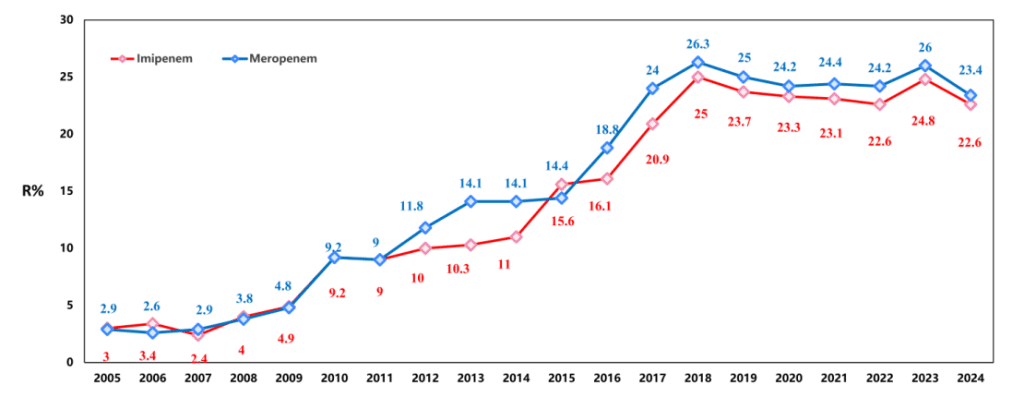CHINET Surveillance Report 2024: Positive signs in the fight against superbugs
In October 2025, the China Antimicrobial Surveillance Network (CHINET), led by the Institute of Antibiotics at Fudan University’s Huashan Hospital (DOI: 10.1186/s44280-025-00092-0), published its 2024 surveillance report in One Health Advances . The report provides an in-depth analysis of antibiotic resistance trends in China, based on an extensive dataset of 458,271 clinical isolates from 74 hospitals across the country. The results show positive developments in the fight against antibiotic-resistant infections, with a significant reduction in resistance to several important pathogens. However, he also highlights the ongoing challenges, especially related to carbapenem-resistant organisms such as Klebsiella pneumoniae and Acinetobacter baumannii.
The CHINET Report 2024 provides a detailed picture of antibiotic resistance across China, highlighting both progress and ongoing problems. Among the clinical isolates collected, gram-negative bacteria dominated with a share of 71.7% of the total, with

Change in resistance rates of K. pneumoniae strains to imipenem and meropenem under the CHINET Antimicrobial Resistance Surveillance Programme 2005ŌĆō2024. Credits: CHINET
Antimicrobial resistance (AMR) has long been a global health crisis, and China has an important role to play in tracking and mitigating its effects. The China Antimicrobial Surveillance Network (CHINET) has been collecting data for years to understand the evolving patterns of resistance across the country. These efforts are part of a global strategy to combat AMR by monitoring the effectiveness of antibiotics and managing clinical treatment. In light of this growing challenge for China’s healthcare system, the 2024 CHINET report provides valuable insights into both the achievements and the areas that still need urgent attention.
Original Paper:
Editor: X-Press Journalistenb├╝ro GbR
Gender Notice. The personal designations used in this text always refer equally to female, male and diverse persons. Double/triple naming and gendered designations are used for better readability. ected.




